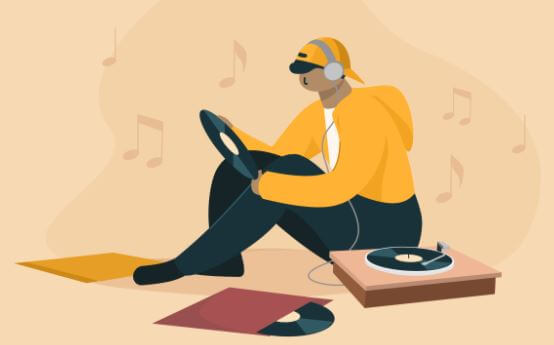 Music and mental health have an almost inseparable connection to one another.
Music and mental health have an almost inseparable connection to one another.
Not only can music affect your mental health, but it can also be a medium through which artists express the good, the bad, the ugly, the heartbreaking, and more.
Why turn to music?
In this day and age, access to mental health treatment, including therapy, is more widespread than ever. That doesn’t mean that conversations around mental health are easy to have, though.
Unfortunately, stigmas around mental health and receiving treatment for it still exist, most notably in communities of color. Where conventional methods of treatment fail, alternative methods (including creative expression) may prevail.
The Importance of Normalizing Mental Health
For some people, openly sharing emotions with others is no easy feat. This is particularly true if they haven’t been encouraged to do so (or supported) throughout their lives.
As tricky as it can be, emotional vulnerability is necessary to some extent, especially if improving mental health is the goal. It allows us people to connect with others and gives us unique insight into who we are and how we respond to conflict.
Rap and Mental Health
The lyrics within many rap songs have historically discussed heavy, real topics. From artists like The Notorious B.I.G. all the way to modern rappers like Kanye West, Lil Wayne, and Kendrick Lamar, rappers consistently demonstrate a desire to not just bring up these topics but break them down.
The detail-oriented and thoughtful nature of rap and its lyrics provide great opportunities to make mental health concerns into something artistic and relatable.
Rap can also take a listener on a narrative journey in a way that other songs might not. The creative freedom that rap allows (wordplay like alliteration, figurative language, etc.) gives artists the ability to craft work that is specific to them.
A big part of normalizing mental health is recognizing that others around you, even those you respect and admire, struggle with the same sorts of things you do.
Even if you don’t personally struggle with mental illness, hearing the experiences of someone you respect creatively and personally can be the first step to opening your eyes to other perspectives
As mentioned, this couldn’t be more important than it is for children of color (or young people of color).
Statistically, young black and brown individuals have more challenges to overcome and fewer prominent role models in the media. These communities arguably stand to benefit the most from engaging in this sort of cultural phenomenon.
Rap music can also be a great way to start conversations about mental health-related topics with friends, family, or other loved ones.
Topics Rap May Cover
Mental illnesses and health concerns like depression, anxiety, self-isolation, and substance abuse are all common topics in many songs (and even entire albums).
Other mental illnesses and mental health concerns you might find in rap songs include:
- Personality disorders or struggle relating to others
- Loss of a loved one
- Bipolar disorder
- Gambling and addiction
- Unhealthy addiction to or reliance upon sex
- Unhealthy relationships and domestic violence
- Strained home life/familial relationships
- Uncertainty about the future
Of course, not all of these topics are inherently related to mental health, but many of them tend to influence it.
Some of these topics are hard to discuss in everyday conversation and can be harder to share with complete strangers. Rap can make it significantly easier to address these challenging and emotionally distressing ideas in a way that feels controlled and safe. Organic exposure to these topics in music could lead to those who need it seeking more health from friends, family, or therapists.
The Potential Future of Rap
One thing we know for certain is that rap music isn’t going away anytime soon and neither are the artists who create it.
The nature of rap music makes it a desirable option for those wishing to share their experiences with mental health. It’s unapologetic, witty, and powerful; a willingness to push boundaries makes many hip-hop artists truly iconic.
It’s likely that the future of rap will bring more of the same and then some; as current rappers deconstruct some of the stigma surrounding mental health, those in the future will only be better equipped and, hopefully, more willing to do so.
